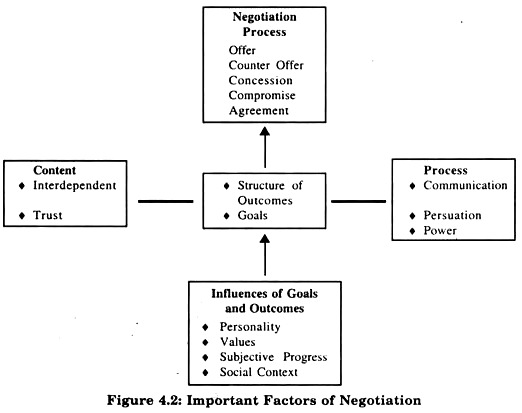Get the answer of: Is Negotiation a Common Sense Game.
Social psychologists say that negotiation is a matter of applied “common sense”. To better appreciate this phenomenon, let us analyze it with the help of an example of a trade union leader negotiating with a branch manager.
It is common in banks for trade union leaders to shout at managers while pursuing one or the other union cause. In all such situations, we observe them to be always at a “high anxiety level”. They are in a fight or flight mood.
Common sense dictates that a manager who has to negotiate with union leaders under such tiring situations must first diffuse the situation, so that he can put across his bargain on the issue and more importantly, get the leader to listen. In order to diffuse the situation the manager must first understand what the other party is thinking about.
And as a first step in this direction, the manager has to show his respect to the yelling union leader to establish his sincerity of purpose and reliability. The old axiom, “When you give somebody a little something, he feels obligated to give you something back”, is what a negotiating manager has to remember as a good piece of commonsensical negotiation.
Secondly, a manager should cultivate the courage to separate the ‘people’ from the ‘problems’ and focus his attention on ‘interests’ rather than ‘positions’. Else, he would find it very difficult to negotiate with a union leader who has been rude to him, who is not fair in his demands/aspirations, and has even yelled at him in the banking hall.
As a professional, the manager should keep his feelings aside and be willing to negotiate with the known disrupters of his work. Whenever a manager is negotiating in such situations, his concern should be how not to get the customer services affected, for that is motivation enough to enable him to negotiate without any reservations and with an open mind.
Another commonsensical demand on a negotiator is to be a good ‘listener’. But most of the time managers keep talking more than hearing the other side, as against the truth that it is the union leader, who in the normal business process is never listened to, and is desperate to be heard.
Besides being good listeners, managers should keep themselves tuned to the noise going on inside their own heads. An active listener should also be on the alert to capture the feelings expressed behind the words of the other party and work to reinforce empathy for the counter party by using frequent “we statements”.
A good negotiator always provides room for the union leader to vent out his personal problems as in the process of letting off steam he may even offer solutions to his problems. A negotiating manager should always have a negotiating team ready behind him, keeping track of the negotiation and making all relevant information readily available to the manager-the principal negotiator.
One important lesson every negotiator must bear in mind is that “if you want to win you have to help the other” to save face.
